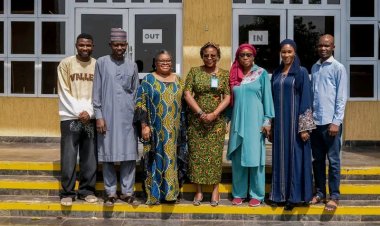Reps Move to Establish Entrepreneur University in Lagos
The House of Representatives in Nigeria has advanced a bill to establish the Ibile Entrepreneur University in Ikorodu, Lagos State, aiming to address the shortage of skilled manpower and promote entrepreneurship among youth.

In a significant legislative step to address the shortage of skilled manpower in Nigeria, the House of Representatives has advanced a bill seeking to establish the Ibile Entrepreneur University in Ikorodu, Lagos State. The bill, sponsored by Babajimi Benson (APC, Lagos) and Kalejaiye Adeboye Paul (APC, Lagos), passed its second reading on the floor of the House and aims to foster entrepreneurial education and innovation among Nigerian youth.
First introduced on June 30, 2024, the proposed university seeks to create a platform for entrepreneurial development and business innovation. According to Benson, the Ibile Entrepreneur University will help equip young Nigerians with the skills, knowledge, and mindset required to become successful entrepreneurs, thus boosting the nation's economic capacity.
“Nigeria, with its vast and youthful population, has immense potential for economic growth and development. However, specialized institutions are needed to harness this potential by equipping our youth with entrepreneurial skills,” Benson stated. The university will focus on nurturing entrepreneurial talents, offering programs that provide both practical and theoretical knowledge in entrepreneurship and business management.
In addition to fostering a culture of innovation, the institution will encourage research and development in entrepreneurial ventures, support small and medium-sized enterprises (SMEs) through incubation and mentorship programs, and equip students with the necessary skills to launch and sustain their own businesses. This, Benson said, will help reduce unemployment and contribute to Nigeria's economic growth.
Co-sponsor Kalejaiye Adeboye Paul emphasized the importance of establishing a specialized institution like Ibile Entrepreneur University to address the gap left by conventional universities, many of which produce graduates with limited employable skills. "We need a university that trains students from their first year to their final year in entrepreneurial development," Paul explained. He added that the university's focus on skill acquisition and self-employment will prepare students to start businesses, become employers, and reduce reliance on white-collar jobs.
Once operational, the university will also serve as a hub for research and innovation, promoting technological advancements and new business models that can revolutionize various industries in Nigeria.
The establishment of the Ibile Entrepreneur University is viewed as a proactive approach to solving critical challenges like youth unemployment, underemployment, and the lack of skilled professionals in key sectors.

 Chris Oyeoku Okafor
Chris Oyeoku Okafor 



